An Intriguing Mary Ainsworth Biography: The Refiner of Attachment Theory
- Read the interesting Mary Ainsworth biography
featuring her fascinating academic journey.
- Satisfy your curiosity about how the famous John
Bowlby and attachment theory more or less bumped into her life.
- See the list of her psychological awards and
literary works.
The Apple Doesn't Fall Far from the Tree
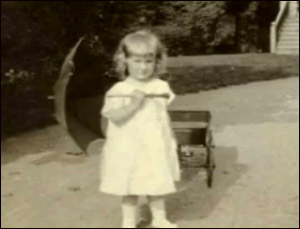 Mary Ainsworth - or Mary Salter, as her maiden name was - was born
in Glendale, Ohio, in 1913, as the first of three sisters.
Mary Ainsworth - or Mary Salter, as her maiden name was - was born
in Glendale, Ohio, in 1913, as the first of three sisters.
The intellectual path that Ainsworth was to follow her entire life
was more or less 'in her blood' from the very beginning. She was
raised by very literature-oriented parents who praised good academic
values.
For instance, the family went to the library weekly
and her parents expected their girls to get a good education (both
of Ainsworth's parents graduated from Dickinson College - her father
with a Master's degree in history).
The Book that Blew Mary's Mind and Set Her Intellectual Course
When Ainsworth was just a teenager, 15 years old, she read the
book 'Character and the Conduct of Life: Practical Psychology
for Every Man' by psychologist William McDougall.
For
young Ainsworth, this book gave birth to a lifelong dedication to
psychology.
'Psychology It Is Then': Ainsworth Followed Her New Passion
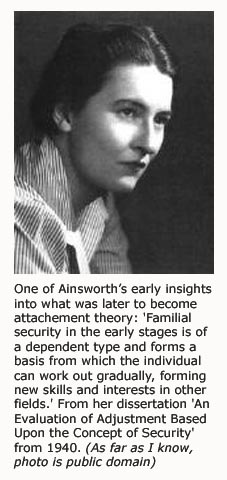 Shortly after her reading of William McDougall's book, she embarked
on her newly found career in life.
Shortly after her reading of William McDougall's book, she embarked
on her newly found career in life.
In 1929 she matriculated
at the University of Toronto in an honors program in psychology.
In 1935 she got her BA.
Shortly after in 1936, she
acquired her Master's and in 1939 she received her PhD in
developmental psychology.
After her PhD she continued to
teach at the University of Toronto.
Her teaching career was
briefly interrupted when she decided to join the Canadian Women's
Army Corp in 1942 (She even became a major in 1945).
After
the Second World War she returned to Toronto to teach and do
research.
Followed Husband to London:
The Important Meeting with John
Bowlby
In 1950 Miss Mary Salter became Mrs. Mary Ainsworth as she married
Leonard Ainsworth.
She followed Leonard Ainsworth to London
where he was to finish his doctor's degree.
Little was
Ainsworth to know that London was to become her destiny: In the
'London Times' she found an ad about a research project on early
maternal deprivation and the development of personality by
psychologist and psychiatrist John Bowlby.
Little aware of the great future importance of her reading this
little ad, she joined the project at Tavistock Clinic under the
direction of John Bowlby who is today considered the father of
attachment theory.
At that time John
Bowlby was interested in what happens to a child when his or her
attachment or tie to his or her mother is traumatically severed.
However, both Mary Ainsworth and John Bowlby agreed that in
order to fully understand the unfortunate effects of early child
parent separation (when a close caregiver would be unavailable
either for an extended period of time or permanently), one had to
look at 'successful' and 'healthy' child parent relationship first.
In other words, to understand the atypical, one had to
understand the typical first.
This insight inspired
Ainsworth to dive into normal child parent relationship in
a normal setting:
And in 1954 a golden research
opportunity presented itself and Ainsworth was off to Africa.
Uganda: Mary Ainsworth's First Study of Mother Infant Bonding in a Natural Setting
During her stay in Uganda Mary Ainsworth observed and concluded that
there seemed to be several
attachment styles that an infant may develop in
relation to his or her mother.
An attachment style describes
the type of infant bonding that a baby forms with his or her primary
caregiver - a bond that may be characterized as either
secure or insecure.
Ainsworth also saw
a correlation between the mother's type of responsiveness and the
type of attachment.
These important insights compelled her
to want to begin further studies
Results from Uganda Paved the Way for the Baltimore Lab Experiment: The Strange Situation Experiment
When Ainsworth returned from Uganda after two years, she began
teaching at John Hopkins University. Another couple of years after
this, she published her results from Uganda.
However, she
wanted more evidence to back up her theories and a tool to 'measure'
the 'amount' of security in a child parent relationship.
This
she strived to obtain in the Strange Situation Experiment in
Baltimore.
If you want to read in-depth about Ainsworth's
'Strange Situation Experiment' and
her discovery of the different attachment styles
infants may display.
Below you can see a video example of
the Strange Situation Experiment
Personal Divorce Spawned New Academic Interest in Psychoanalytic Theory
In 1960 Mary Ainsworth and her husband were divorced; a process that
was very painful for Ainsworth, but at the same time it also sparked
a new academic interest.
Because of a depression she sought
psychoanalytic therapy, which was to become a great interest
professionally as well.
During all this Ainsworth
continued to work with John Bowlby in relation to attachment theory.
Mary Follows the Trail of Developmental Psychology to Virginia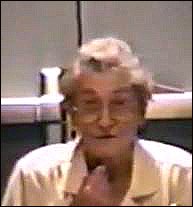
In 1975 Mary Ainsworth moved to the University of Virginia - partly
because many good colleagues had settled down there and because
Virginia had become the new hotspot for developmental psychology.
Ainsworth stayed at the University of Virginia for the rest
of her life.
From 1884 to 1999 (1999 was the year of her
passing away) she was entitled Professor Emeritus.
Ainsworth's Many Academic Rewards
- In 1984 Ainsworth received the G. Stanley Hall Award from
the American Psychological Association for developmental
psychology.
- In 1987 the American Psychological Association granted
her another one: the Award for Distinguished Professional
Contribution to Knowledge.
- And in 1989 yet another one from the generous American
Psychological Association: the Distinguished Scientific
Contribution.
- Ainsworth also received the Gold Medal for
Scientific Contributions from the American Psychological
Foundation in 1998.
Some of Ainsworth's Literary Works
- In 1965 she published 'Child Care and the
Growth of Love'.
- In 1967 'Infancy in Uganda: Infant Care and the
Growth of Love'
- In 1978 'Patterns of Attachment: A Psychological
Study of the Strange Situation'.
Ainsworth's Important Legacy
Despite academic criticism in relation to various points in
her refinement of attachment theory (such as not taking infant
personalities into account, or the importance and influence of
other important caregivers other than just the primary one
etc.) there's no doubt that the studies and theories about
infant attachment have had a profound impact on the psychology
of early infant bonding and the development of attachment
related therapies.
Ainsworth left the world no
children of her own, but supposedly considered her academic
circle her family.
Places to Go for More Research Information about Ainsworth
If you seek more information about Ainsworth specifically, you might like to follow one of the following links:
-
Ainsworth (Women's Intellectual Contributions to the Study of
Mind and Society)
-
Mary D. Salter Ainsworth: Tribute and Portrait
-
Ainsworth, Mary 1913-1999 BIBLIOGRAPHY
If you desire more information about attachment theory, you can scroll down to the end of this page and choose between the many attachment related links there.
Your Positive Parenting Ally,
Birgitte

Want to stay in touch and get the latest news?
Sign up
for my free newsletter
Parent Coaching
- For Inner Peace, Clarity and a Deeper Connection to Your Child
 Being a parent can feel like a double-edged sword. Life with kids may feel like the greatest gift you have ever received, while at the same being hugely challenging, often leaving you confused, stressed and overwhelmed.
Being a parent can feel like a double-edged sword. Life with kids may feel like the greatest gift you have ever received, while at the same being hugely challenging, often leaving you confused, stressed and overwhelmed.
When we feel like this, we've lost touch with ourselves. We can't hear our own inner voice, and it's difficult to know what is 'right' for us and how to act.
I offer in-depth parent coaching to help you regain your balance and get back in touch with yourself. From a place of inner peace and clarity, your will find your own answers which will help you reconnect with your child from a place of unconditional love and acceptance.
Read more about my parent coaching here.
Where Would You Like to Go Next?
Attachment Parenting Articles
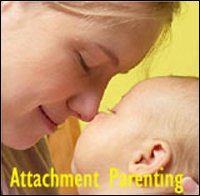 Attachment Parenting and Intuitive Parenting: Read Your Child Rather Than Some Book! |
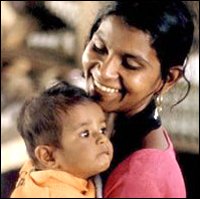 What Is Attachment Parenting? 10 Sharp Truths and 2 Common Misconceptions! |
Attachment Theory Articles (Scientific Angle)
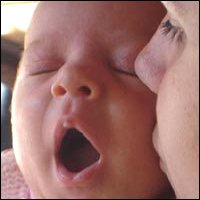 Psychology Attachment Behavior; Find out When to Expect the Constant Clinging or the Letting Go of Mom's Skirt! |
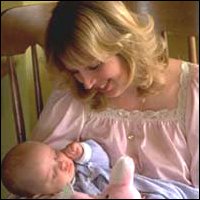 Attachment Theory is Good Basic Knowledge ... But Misses Out on Individual Infant Temperaments! |
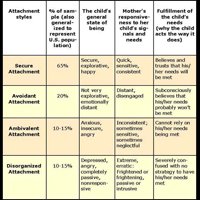 The Four Infant Attachment Styles: Straight to the Point, Quick Understanding! |
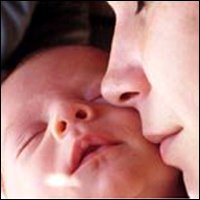 Secure or Insecure Attachment in Infancy ... Largely Shapes Who We Are Today! |
Attachment Experts
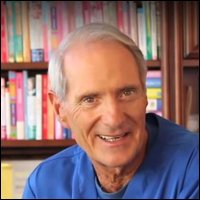 Deep Insights into the Essence Dr Sears' Attachment Parenting along with a Fascinating Historical View on the Slow Rising Consciousness of Attachment Parenting |
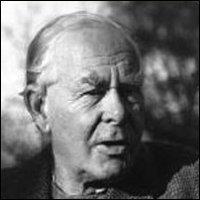 John Bowlby: The Father of Attachment Theory |
Attachment, High Need and Separation Anxiety
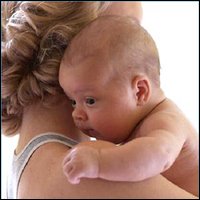 A High Need Baby: A Strong Personality Is Great, But Where's the Off Button? |
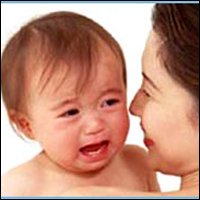 Baby Separation Anxiety The More Your Baby Clings, the More You Let Him! 10 Tips to Ease Baby Separation Anxiety |
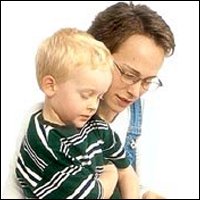 Valuable Insights into Separation Anxiety in Children and Babies: Meet Your Child with Full Acceptance and Deep Connection! |
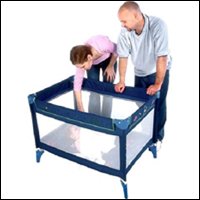 Facts and Fiction about the Controversial Ferber Method along with a Discussion of Its Potential Long Term Consequences |
Back to the top of this page about An Intriguing Mary Ainsworth Biography: The Refiner of Attachment Theory
Go to the Positive Parenting Ally Homepage







